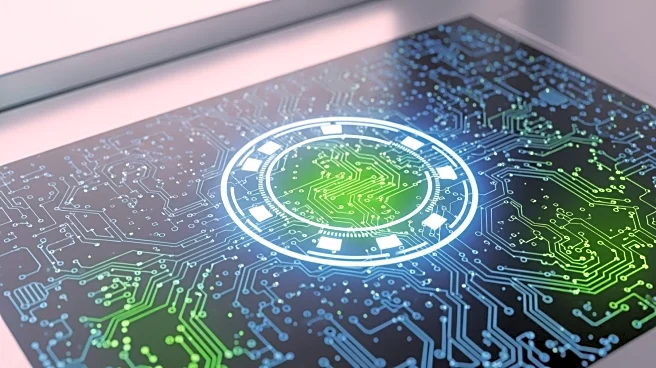What's Happening?
HeyDonto has announced the acceptance of its study on self-healing AI code generation for publication in Frontiers in Artificial Intelligence. The study introduces a framework that enables AI systems to autonomously
recognize and repair errors in their code, blending principles from quantum theory, biology, and mathematics. This development aims to enhance the reliability and adaptability of AI systems, reducing critical errors and improving code correctness. The framework represents a significant step towards responsible automation and emergent intelligence, contributing to the evolution of AI under human oversight.
Why It's Important?
The acceptance of HeyDonto's study marks a milestone in AI development, emphasizing the importance of self-healing capabilities in intelligent systems. By enabling AI to autonomously repair its code, the framework addresses the brittleness of current AI tools, enhancing reliability and reducing the need for manual intervention. This advancement has the potential to transform software development, offering more resilient and adaptive AI systems. The focus on responsible automation also highlights the ethical considerations of AI evolution, ensuring that intelligent systems operate under human oversight and maintain alignment with intended goals.
What's Next?
HeyDonto's framework may lead to further research and development in self-healing AI systems, potentially influencing the design of future intelligent technologies. The publication in Frontiers in Artificial Intelligence could prompt other researchers to explore similar approaches, fostering collaboration and innovation in the field. As AI systems become more autonomous, discussions around ethical guidelines and human oversight will likely intensify, shaping the future of AI development and its integration into various industries.
Beyond the Headlines
The development of self-healing AI systems raises important ethical and practical considerations. As AI becomes more capable of autonomous decision-making, ensuring transparency and accountability in its operations becomes crucial. The ability of AI to repair itself also prompts discussions about the balance between automation and human control, as organizations navigate the implications of increasingly intelligent systems. This advancement underscores the need for responsible AI development, prioritizing resilience and trustworthiness in intelligent technologies.










